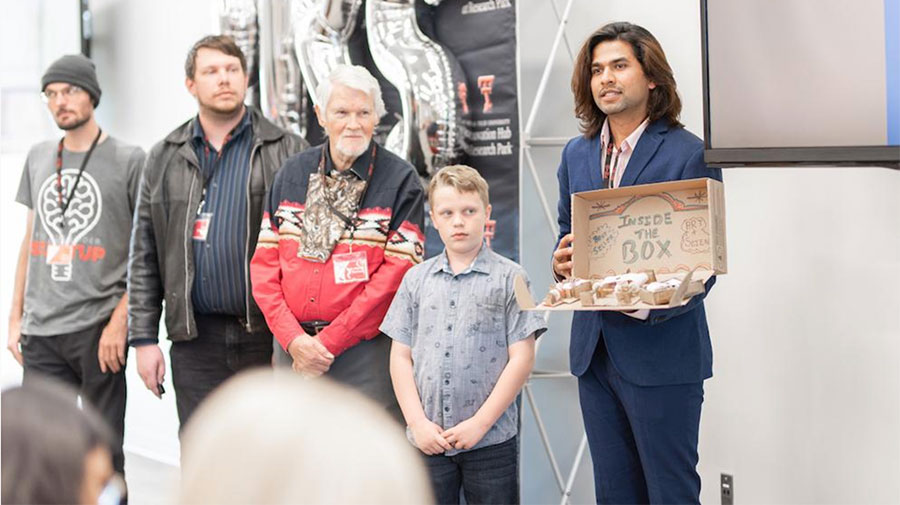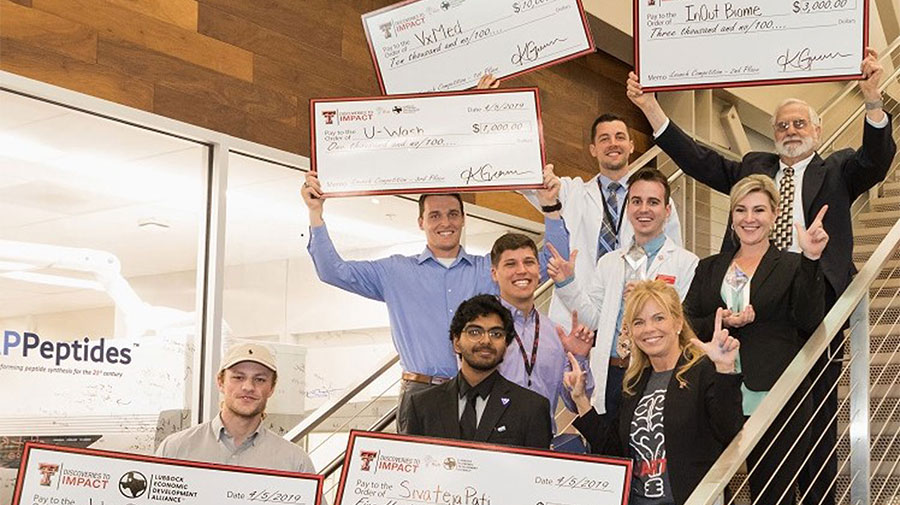Innovation Hub Nurtures Innovative Spirit in Lubbock Community, Texas Tech
By: Kaitlyn Hale
Lubbock, Texas may not be Silicon Valley, but it is a place rife with innovation and opportunity. The Innovation Hub at Research Park is working to make sure Lubbock and the region grows into its potential.
The Innovation Hub at Research Park, also known as the Hub, was founded in 2015 as a place to foster an entrepreneurial community at Texas Tech and in Lubbock. Since its inception, the Hub has created 12 unique programs for aspiring entrepreneurs at any stage of the process, from the very beginning of an idea to fully fledged startups seeking advice.
"There is nothing in this world more powerful than a great education," said Kimberly Gramm, associate vice president of innovation and entrepreneurship, "and that great education's relevancy is a function of the world we live in. So we at Texas Tech have made it a priority to make sure that everybody has the tools they need to compete in a world that's changing."

Innovation is for everyone
Those tools include programs like the Red Raider Startup, a three-day intensive course that takes groups through the process of beginning a business, starting with an idea and ending the weekend with a presented pitch to a panel of experts who can offer advice. The event, which started as an event for Texas Tech students, has expanded to include versions for both high school students and community members. Anyone can join, and Williams said participants have ranged from 11 to 75 years old.
"It's a place where we nurture smart ideas," said Taysha Williams, the program director at the Hub. "We want to create social or commercial value. No matter what stage a person is at when they walk in our door, there's a place for them."
Those programs range from business plan workshops to the year-long Texas Tech Accelerator Program, which provides training and mentorship that can fast-track a company from formation to a place where they're ready to start raising funds, including a $25,000 grant from the Lubbock Economic Development Association for completing the program.
The Hub also holds other events to inspire and spur innovation in the community, like last year's Performance Innovation Speaker Series supported by a grant from the CH Foundation. The series centered around innovation in the arts, which Williams said many people don't think about when imagining what innovation looks like.
"A lot of people feel like innovation lies just in the business school," Williams said, "and we're trying to break those barriers."
Local companies looking for space can also become tenants at the Hub, which boasts office space and state-of-the-art laboratories. Williams said the tenant aspect of the Hub, called an incubator, gives startups room to grow with access to all of the Hub resources at their fingertips.
"We've seen companies grow so much just by being at the Innovation Hub because of the people that are surrounding them," Williams said. "They have other startups that are going through the same things they're going through. They have the program directors and everybody right there to ask questions. We have mentors going in and out all the time, and I've just seen kind of a family aspect here."
Innovation as a nonprofit

Part of fostering innovation includes helping to fund it. Knowing that investing involves a certain amount of risk, Gramm began working to move the Hub forward as a nonprofit almost immediately after arriving at Texas Tech in 2016.
Following the example of similar research parks like Purdue, the Texas Tech Research Park Inc. was established in February 2018 and achieved nonprofit status in April 2019. As a nonprofit, the Hub is able to do things like set up a venture capital fund without putting the university or the way it receives funding at risk.
"When we're not a part of that conversation, and we don't offer these kinds of resources, it's really hard to see where the impact of that disruptive research can benefit the world most," Gramm said. "So universities that are choosing to do this, I think, are ahead of the curve."
Discoveries
-
Address
Texas Tech University, 2500 Broadway, Box 41075 Lubbock, TX 79409 -
Phone
806.742.3905 -
Email
vpr.communications@ttu.edu
